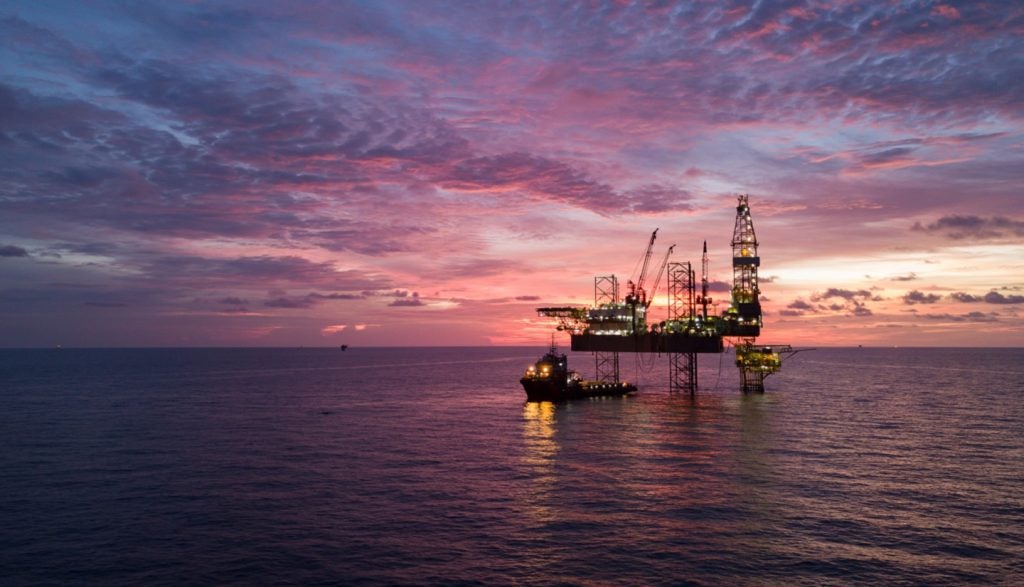

The oil price has been driven down by a combination of increased exploration and investment due to the previously high oil price, slow growth in the EU and Asia markets and because the US is now a major energy exporter, global editorial director for pricing group Jorge Montepeque told delegates in his key note speech at the Platts London Oil Forum 2015 on Monday.
"All this means we have seen a correction in the oil prices," he added. "Right now what you see when you look around are faces of concern – will projects continue, will my client go bankrupt?"
There is currently an oversupply in the market because a bulk of new oil supply has come from the US and because the Organisation of the Petroleum Exporting Countries (OPEC) – usually a swing producer – has chosen to hold firm with production.
The US has essentially overtaken a lot of countries in terms of energy production and is very close to energy independence.
"The US moves very fast, it doesn’t think in the long term," Montepeque added.
See Also:
"OPEC is no longer the swing producer -the US is," associate editorial director for Europe and Africa oil news Stuart Elliot added in a later session.
How well do you really know your competitors?
Access the most comprehensive Company Profiles on the market, powered by GlobalData. Save hours of research. Gain competitive edge.

Thank you!
Your download email will arrive shortly
Not ready to buy yet? Download a free sample
We are confident about the unique quality of our Company Profiles. However, we want you to make the most beneficial decision for your business, so we offer a free sample that you can download by submitting the below form
By GlobalDataOil US exports other than crude have doubled since 2011. However, crude oil exports are not expected to come out of the US anytime soon, said Elliot.
What can the offshore oil and gas industry expect in terms of CAPEX spending, regional hotspots, oil prices and potential challenges in 2015?
Oil production from OPEC has actually fallen from 30.03 million b/d (mbd) in December to 29.94 (mbd) in January, according to a Platts’ survey.
The fast pace of technology innovation has also driven oil prices down, according to Mentepeque, enabling more oil to produced from each well also adding to oversupply in the market.
"The pace of tech improvement is massive," said Montepeque. "Schlumberger told me they set out certain efficiency levels for 2014 which they achieved in the beginning of January.
"It was once thought a shale well had a life of 15 – 18 months but right now people are figuring out how to re-frack and extend the life of the well."
He added that revenue loss to the oil industry due to the low oil price can be calculated at &5.4bn a day meaning investment in technology is likely to slow down along with exploration.
What is the future of OPEC?
Saudi Arabia, one of the 12 countries that make up OPEC – the others are Libya, Algeria, Angola, Ecuador, Iran, Iraq, Kuwait, Nigeria, Qatar, United Arab Emirates and Venezuela – want to maintain marginal control over supply while the US is producing so much oil, said Elliot.
But this strategy is harming the poorer members of OPEC such as Venezuela, Libya, Iraq and Nigeria.
He said the fiscal break even price for Saudi Arabia is $87 per barrel whereas in Libya it is $125 per barrel. The current price – which at the time of writing is $52.86 per barrel – is unsustainable for Libya: can OPEC move forward and meet everyone interests?
"Is this the end for OPEC? Maybe poorer countries such as Venezuela and Nigeria will look to collaborate elsewhere?" Elliot says.
"OPEC used to be the swing producer but without that force it is the market that will decide the price."
He adds that the oil price has actually gone up from the low $40s to the late $50s so maybe the groups’ plan is working.
Industry is waiting to if OPEC will continue on its current course of action or change tack when the group meet next in June.
Future impacts to oil price
Other factors that could affect the future oil price include US sanctions being lifted from Iran – 700,000 bpd could come to market if sanctions are lifted, warned Elliot.
And while Libya’s fall in production from the market should have a big impact it is actually having less of an impact than you would expect, said Platts editor for European and African oil, Paula VanLaningham.
EU may also ban the import of Libya oil that would be a signal to market, suggest Elliot.
In terms of EU and US sanction against Russia, they have had a marginal impact so far.
China has put a record number of offshore blocks up for auction as it looks to kick-start its domestic oil and gas industry.
"Sanctions on Russia have had a financial impact but it has not affected overall crude imports, not impact the physical side but it might have a big financial impact on the exploration side," VanLaningham added.
The Russian ruble, for example, has lost around half its value over the last year.
Russia has said it expects production to fall in 2015 – it currently produces 10.5bpd – a fall in half this would have a "major impact" Elliot said.
"They [Russia] insist the sanctions haven’t had much impact but I have my doubt – they will need western finance in the long run," he added.
Russia, however, is unlikely to be hit by oil export sanctions as Europe is too dependent on Russian oil – it would be a last resort, Elliot said.
Looking to the future
For the North Sea the outlook remains bleak according to Platts’ analysts. Shell has decommissioned one of the North Sea’s biggest platforms – the Brent Delta – and if the current price remains 20 percent of North Sea oil could be lost to market.
There’s also been an expectation that the volatility in the market could see more future mergers and acquisitions, with more well off companies, such as Arab owned ones, buying up vulnerable companies.
Elliot said "there is going to be room to buy," but added he has not seen any big mergers thus far.
"Small companies are more vulnerable and it will be interesting to see some of the announcements that might come," he added.
The parting mood of Montepeque’s analysis of the current market was very much that the oil industry is set for potentially a few more years of pain, but many companies, used to the cyclical nature of the industry, will likely be robust enough to weather the rough time.
"Cost is very flexible we have found – prices of iron ore are also falling – if the price of energy goes down further in time people will figure out how to do things with less," he said, finishing by saying: "There is nothing like high prices to cure high prices and there is nothing like low prices to cure low prices."




